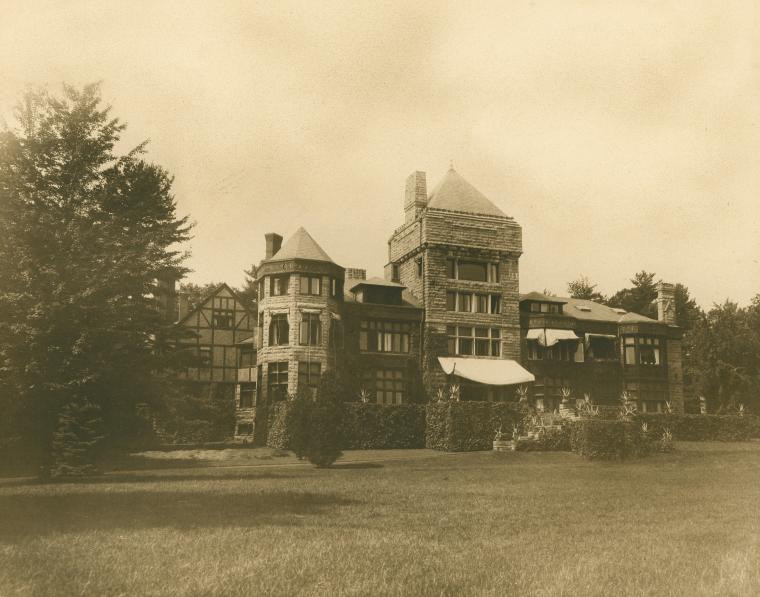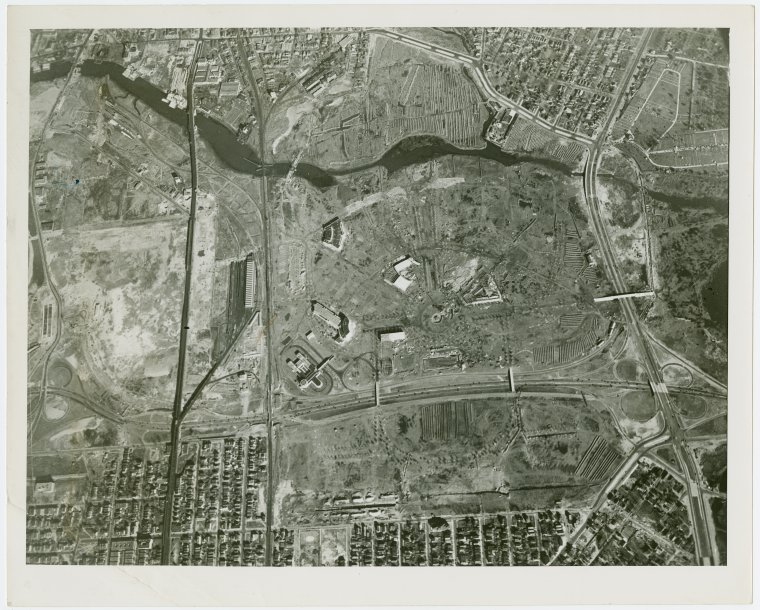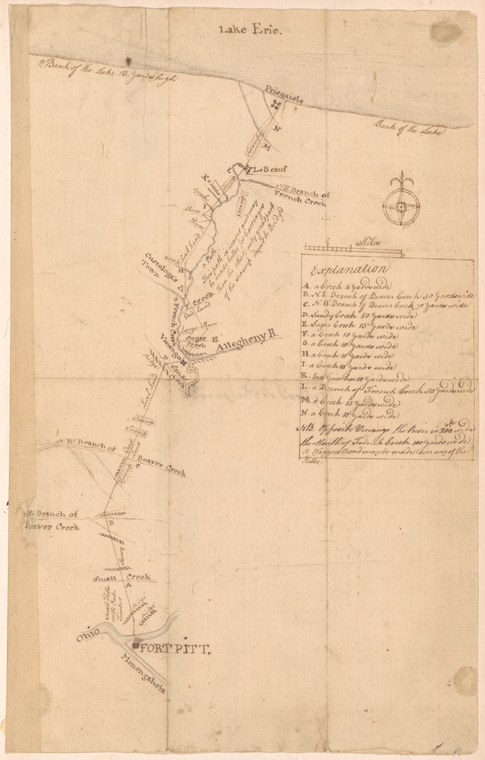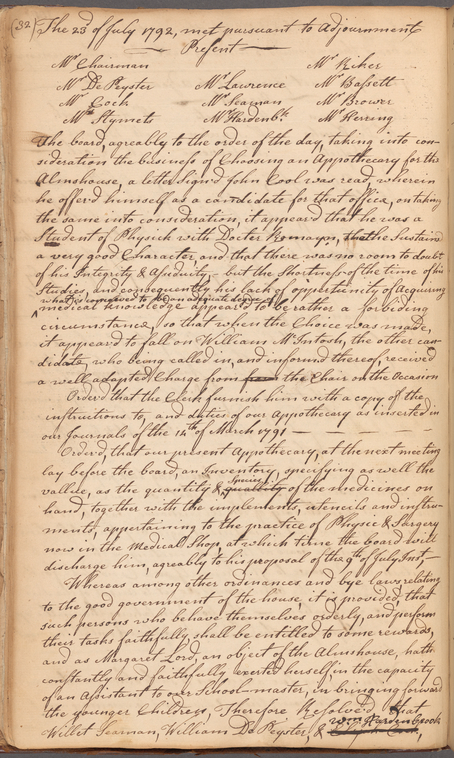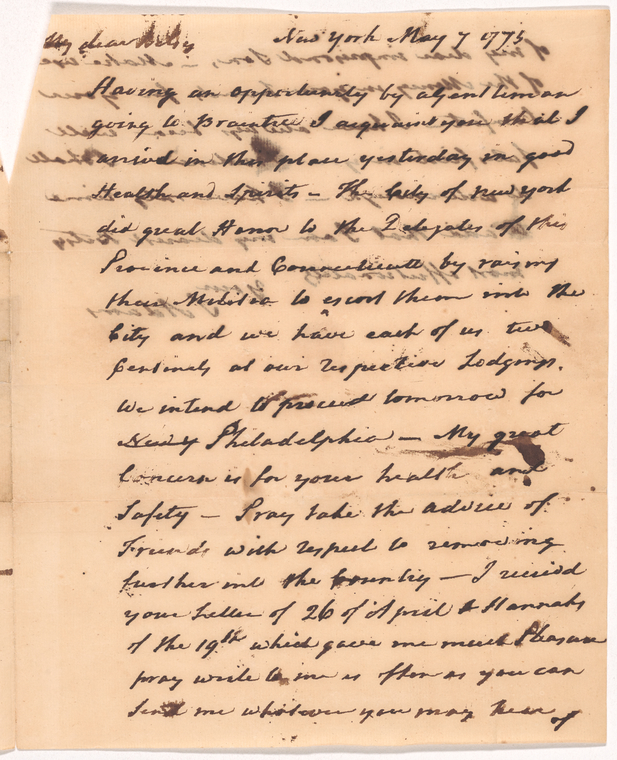An Introduction to Mass Digitization and the Brown Brothers Collection
by Katie Wolf
June 12, 2019
Find out what happens when a newly acquired collection - in this case, records from a famed banking house, from 1825 to 1880 - is ready to be digitized and added to the NYPL Digital Collections.
Annie Proulx’s Visibility through Violence
by Jamie Crosswhite, Short-Term Research Fellow
January 10, 2019
A Library Fellow discovers the staggering volume of research undertaken by Proulx for her novels: notes, comments, observations, and newspaper clippings on small communities, and the all-too-frequent violence within.
2018: The Year in Archival Research
by NYPL Staff
December 20, 2018
Here are a dozen recent books whose authors relied on the Library's archival records as a vital resource, from the world of George Washington to the history of the Manhattan waterfront. Add these to your 2019 reading list!
Ambasciatrice, Activist, Auntie, Author: Caroline Crane Marsh
by Etta Madden, Short-Term Research Fellow
December 19, 2018
Get a look at archived letters that illustrate how Marsh inspired others as a writer, activist, translator, and strong family supporter.
Piecing Together the Early Musical History of the Yaddo Artist Colony
by Caitlin E. Brown, Short-Term Research Fellow
December 5, 2018
Discover the place once frequented by Aaron Copland, Leonard Bernstein, and an entire community of musical notables, in this essay from an NYPL Short-Term Research Fellow.
A Road to Peace and Freedom: An Interview with Robert Zecker
by Tal Nadan, Manuscripts and Archives Division, Stephen A. Schwarzman Building
November 6, 2018
An Election Day special from the NYPL Manuscripts and Archives Division: A look into the historic International Workers Order and their efforts during the 1930s to 1950s. Take a look.
Reflecting on Early Republic Maternal Roles Through the Lens of Spanish Culture
by Kaitlin Tonti, Short-Term Research Fellow
November 1, 2018
Explore the ways that early 19th century American women viewed women from other international cultures.
Jacob Riis & Americanization Campaigns in Progressive Era New York City
by Elizabeth Verklan, Short-Term Research Fellow
May 16, 2018
NYPL's Manuscripts and Archives Division provided historical context into one of the early twentieth century’s most influential anti-sweatshop advocates.
A Vote of One’s Own: The International Woman Suffrage Alliance and Rosika Schwimmer
by Cara Dellatte
April 9, 2018
With the centennial of women's suffrage around the corner, it's important to begin highlighting the many women that were involved both nationally and internationally in this movement.
Diamonds in the Rough: Barbara Epstein at the New York Review of Books
by Robyn Hjermstad
November 14, 2017
Epstein was one of the founders of the New York Review of Books and its co-editor. Her files, dating from 1963 to 2003, document 40 years spent shaping and improving the Review.
Informed Archives: The Straphangers Campaign and the NYC Subway System
by Meredith Mann, Manuscripts and Archives Division, Stephen A. Schwarzman Building
August 29, 2017
Much attention has been paid lately to the MTA during what has been termed the “Summer of Hell.” Instead of simply bemoaning the current state of affairs, we can look to a citizen’s group that has been actively working toward improving the City transit system for almost forty years.
Turn Around, Bright Eyes: Henry Draper and the 1878 Eclipse
by Tal Nadan, Manuscripts and Archives Division, Stephen A. Schwarzman Building
August 18, 2017
The total solar eclipse which crossed from Alaska to Texas spurred many to make the trip West. Dr. Henry Draper assembled a group who watched the eclipse from the railroad outpost of Rawlins, in the Wyoming Territory.
Total Eclipse of the Art: Trouvelot and the 1878 Eclipse
by Kyle Triplett, Rare Book Division, Stephen A. Schwarzman Building
August 17, 2017
For Americans in the post-Civil War years, the most iconic images of the cosmos were largely the work of one man: Étienne Leopold Trouvelot (1827-1895), an artist and amateur astronomer who produced incredible images of the heavens.
Voices Buried in the Ash Heap: Private Waste Disposers, Scavengers, and the 1939 World’s Fair
by Tina Peabody, Short-Term Research Fellow
August 8, 2017
Studying the history of garbage teaches you that treasures can often be found in unexpected places. This was certainly true of my research at The New York Public Library.
Edith Magonigle and the Art War Relief
by Tal Nadan, Manuscripts and Archives Division, Stephen A. Schwarzman Building
July 20, 2017
Called Art War Relief, members from a group of art societies formed a coalition under the auspices of the American Red Cross.
Informed Archives: The Pentagon Papers and the Fight to Know
by Meredith Mann, Manuscripts and Archives Division, Stephen A. Schwarzman Building
June 13, 2017
The celebration of the Helen Bernstein Book Award for Excellence in Journalism prompted an exploration of our collections to celebrate the work and achievements of the Fourth Estate.
Informed Archives: The Environmental Action Coalition and the Birth of Earth Day
by Meredith Mann, Manuscripts and Archives Division, Stephen A. Schwarzman Building
April 20, 2017
In January 2017, thousands gathered on Fifth Avenue and the surrounding area for the Women’s March. But this wasn’t the first time that this street was the home for a massive demonstration: almost fifty years ago, it was a primary thoroughfare for the first Earth Day celebration.
Transportation, Communications, and Colonial War
by Mark Boonshoft
April 12, 2017
How the British Empire built the transportation and communications infrastructure that allowed them to win the colonial contest for eastern North America.
Women's Lives in 1790s NYC: Stories from the Almshouse Records
by Mark Boonshoft
March 28, 2017
The experience of women in 1790s New York City, from the records of the NYC Almshouse and Bridewell.
The Other Mrs. Adams
by Helena Yoo, Guest Researcher, Manuscripts and Archives Division, Stephen A. Schwarzman Building
March 27, 2017
During women's history month, consider the influence of "the other Mrs. Adams" on the American Revolution.
 With your library card, it's easier than ever to choose from more than 300,000 e-books on SimplyE, The New York Public Library's free e-reader app. Gain access to digital resources for all ages, including e-books, audiobooks, databases, and more.
With your library card, it's easier than ever to choose from more than 300,000 e-books on SimplyE, The New York Public Library's free e-reader app. Gain access to digital resources for all ages, including e-books, audiobooks, databases, and more.


